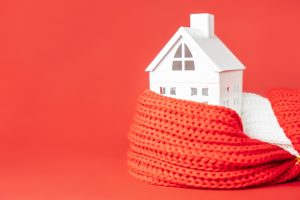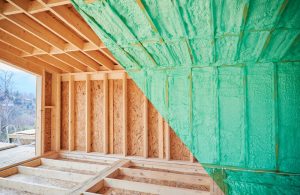Soundproof Insulation for Your Music Studio

If your band has begun to hit it big, if you love mixing for yourself, or if you intend on opening up a recording studio business, you will want to figure out how to keep the noise pollution to a minimum. Your family might not enjoy how loud you crank and mix tunes, and the businesses that share your walls might go insane listening to a new band’s fiftieth take on their popular single. Soundproof insulation will keep the sound in and the frustration of family and neighbors down. But how does soundproof insulation work? What types of soundproofing materials are out there? Valley Insulation LLC gives you the inside scoop here.
How Soundproof Insulation Works
Similarly to light, sounds move in waves, but their wavelengths are much longer than light’s. You can think about sound waves as vibrations. Remember the old trick of connecting two cans with a taut string? You and your childhood friend could whisper secrets from one room to the next. This worked because, unlike light, sound actually moves faster through many solids. The waves vibrate up and down the string and into the cans, and your ears translate those vibrations into sounds.
Soundproof insulation works to slow down and stop sound waves before they enter their home. Material that absorbs vibration works well for insulation. If the insulation stops the vibration, the sound has no way of continuing. It moves through these vibrations and must transmit through the wall and into the air of your home. Only then will you hear the sound.
What Materials Stop Vibrations?
Many materials, such as cork and rubber, are known for their ability to absorb vibrations, but most people neither want nor can afford to fill their walls with rubber or cork. Cellulose and fiberglass work as great vibration dampers and the installation process for these materials is much easier than filling your walls with rubber.
Cellulose insulation is considered the cheapest and safest option for soundproof insulation. Cellulose materials do a great job of deadening sound vibrations while also keeping your home thermally insulated. Unlike foam insulation, cellulose is not a fire hazard. In fact, cellulose insulation is partially made from fire-retardant material, making it a much safer soundproofing option than foam insulation. Valley Insulation LLC offers Nu-Wool cellulose, which has a UL Class 1 fire rating. For the safest option, contact us for your soundproof insulation needs.
Related Post: Reasons to Install Soundproof Insulation Aside at Home
Get Your Home Insulated with Valley Insulation LLC
If you want soundproof insulation or just traditional insulation, look no further than Valley Insulation LLC. Our team of professionals have installed insulation in the Cincinnati, Ohio, area for 40 years. Get your sound studio soundproofed right!



